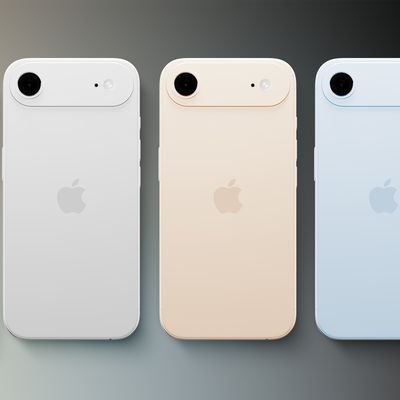Apple Adjusts Warranty Coverage in Australia to Comply With Consumer Protections Law
 Australian law requires that sellers of products offer warranties for "a reasonable period from date of delivery until the failure becomes apparent". This has been interpreted as two-years for computers. Apple's standard warranty on all products runs for one-year, while AppleCare extends coverage to three years on Macs.
Australian law requires that sellers of products offer warranties for "a reasonable period from date of delivery until the failure becomes apparent". This has been interpreted as two-years for computers. Apple's standard warranty on all products runs for one-year, while AppleCare extends coverage to three years on Macs.
The Sydney Morning Herald writes of the warranty requirements, including that Apple Retail Store employees and authorized resellers have been notified of a change in how Apple handles warranty claims in the country.
On Friday, Apple's Australian retail store staff and authorised Apple resellers were notified about a change to Apple's internal policy on how it handled standard warranty claims.
Until now, many Apple consumers have reported on forums that store staff have only ever discussed with them a standard 12-month manufacturer warranty when selling, fixing or replacing Apple goods.
Apple has now changed this from 12 months to 24, which appears to bring it in line with Australian Consumer Law.
The consumer protection law, which Apple details in a page on its website, requires purchasers to contact the seller of a product for a warranty claim rather than the manufacturer. This means that if a Mac is purchased from a non-Apple retailer, that retailer is responsible for satisfying the requirements of the Australian law. It also means that Apple is responsible for warranty claims on third-party products purchased at Apple Retail Stores.
Apple notes that consumers can receive warranty coverage under the Australian consumer law, Apple's standard one-year warranty, or AppleCare, whichever is applicable.
The company had previously gotten in trouble over its AppleCare practices in Italy -- that country has a similar consumer protection law and Apple was fined more than a million dollars because it did not sufficiently notify customers about the standard warranties available to them under Italian law.
Popular Stories
Apple will launch its new iPhone 17 series in two months, and the iPhone 17 Pro models are expected to get a new design for the rear casing and the camera area. But more significant changes to the lineup are not expected until next year, when the iPhone 18 models arrive.
If you're thinking of trading in your iPhone for this year's latest, consider the following features rumored to be coming...
A new Apple TV is expected to be released later this year, and a handful of new features and changes have been rumored for the device.
Below, we recap what to expect from the next Apple TV, according to rumors.
Rumors
Faster Wi-Fi Support
The next Apple TV will be equipped with Apple's own combined Wi-Fi and Bluetooth chip, according to Bloomberg's Mark Gurman. He said the chip supports ...
Apple does not plan to refresh any Macs with updated M5 chips in 2025, according to Bloomberg's Mark Gurman. Updated MacBook Air and MacBook Pro models are now planned for the first half of 2026.
Gurman previously said that Apple would debut the M5 MacBook Pro models in late 2025, but his newest report suggests that Apple is "considering" pushing them back to 2026. Apple is now said to be...
Apple's next-generation iPhone 17 Pro and iPhone 17 Pro Max are only two months away, and there are plenty of rumors about the devices.
Below, we recap key changes rumored for the iPhone 17 Pro models.
Latest Rumors
These rumors surfaced in June and July:A redesigned Dynamic Island: It has been rumored that all iPhone 17 models will have a redesigned Dynamic Island interface — it might ...
iPhone 17 Pro and iPhone 17 Pro Max models with displays made by BOE will be sold exclusively in China, according to a new report.
Last week, it emerged that Chinese display manufacturer BOE was aggressively ramping up its OLED production capacity for future iPhone models as part of a plan to recapture a major role in Apple's supply chain.
Now, tech news aggregator Jukan Choi reports...
In select U.S. states, residents can add their driver's license or state ID to the Wallet app on the iPhone and Apple Watch, providing a convenient and contactless way to display proof of identity or age at select airports and businesses, and in select apps.
Unfortunately, this feature continues to roll out very slowly since it was announced in 2021, with only nine U.S. states, Puerto Rico,...
The iPhone 17 and iPhone 17 Air will be available in a total of nine color options, according to new information coming out of Asia.
The iPhone 17 Air's expected color options.
According to the leaker going by the account name "yeux1122" on the Korean blog Naver, accessory manufacturers are now producing camera protector rings for the iPhone 17 and iPhone 17 Air in colors to match their...
Apple will launch a new 12th generation entry-level iPad in the spring of next year, according to Bloomberg's Mark Gurman.
Apple is said to have two versions of the entry-level 11-inch iPad in development, codenamed J581 and J582. These could refer to different storage capacities – in which case, Apple may be planning to drop the existing lowest capacity option. The current iPad 11 is...
 Australian law requires that sellers of products offer warranties for "a reasonable period from date of delivery until the failure becomes apparent". This has been interpreted as two-years for computers. Apple's standard warranty on all products runs for one-year, while AppleCare extends coverage to three years on Macs.
Australian law requires that sellers of products offer warranties for "a reasonable period from date of delivery until the failure becomes apparent". This has been interpreted as two-years for computers. Apple's standard warranty on all products runs for one-year, while AppleCare extends coverage to three years on Macs. 



















